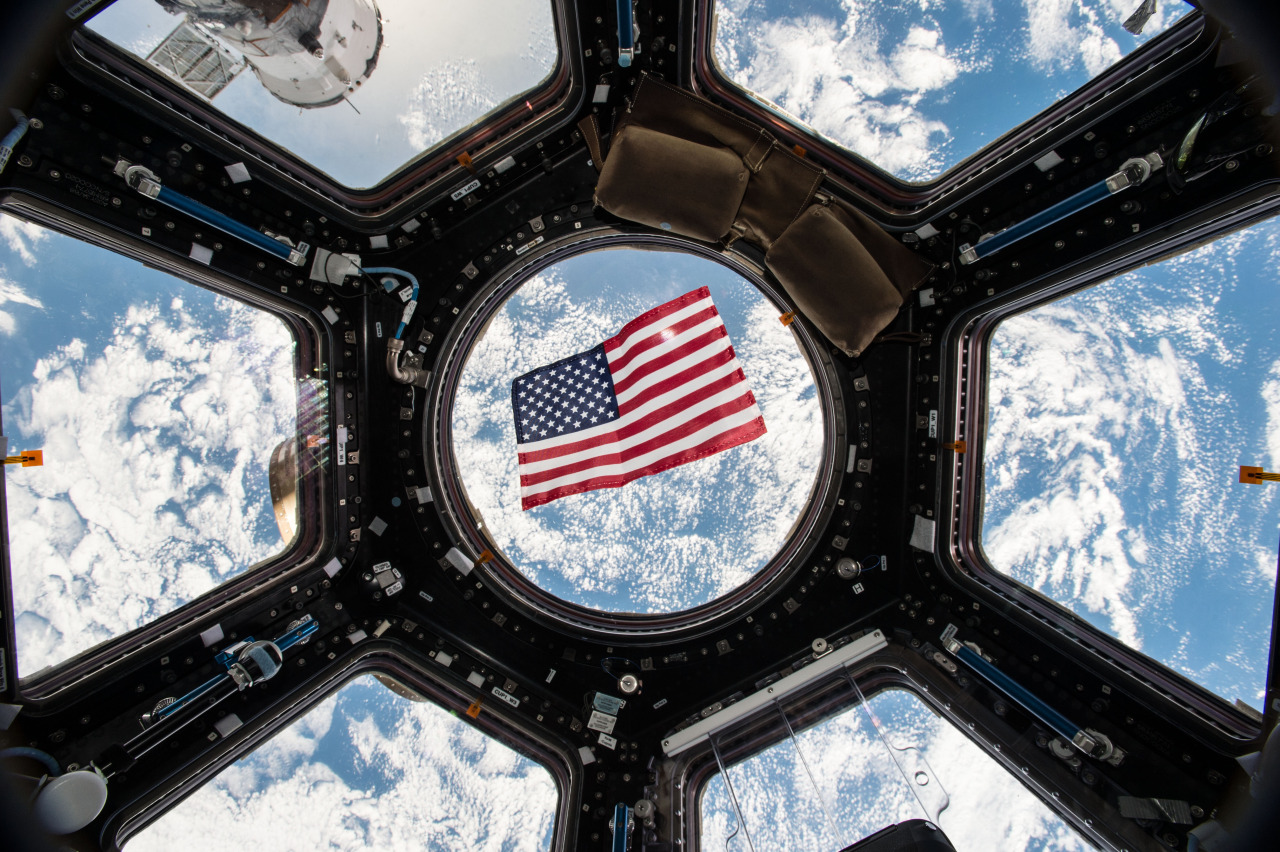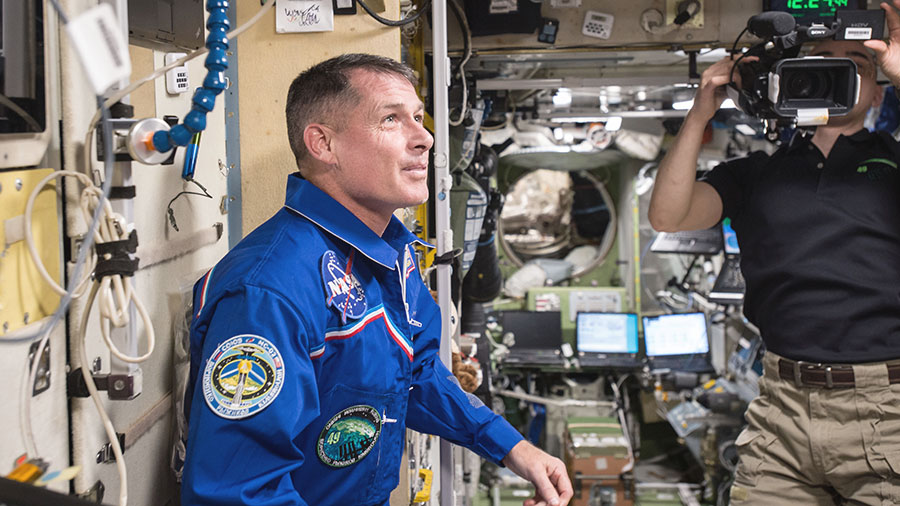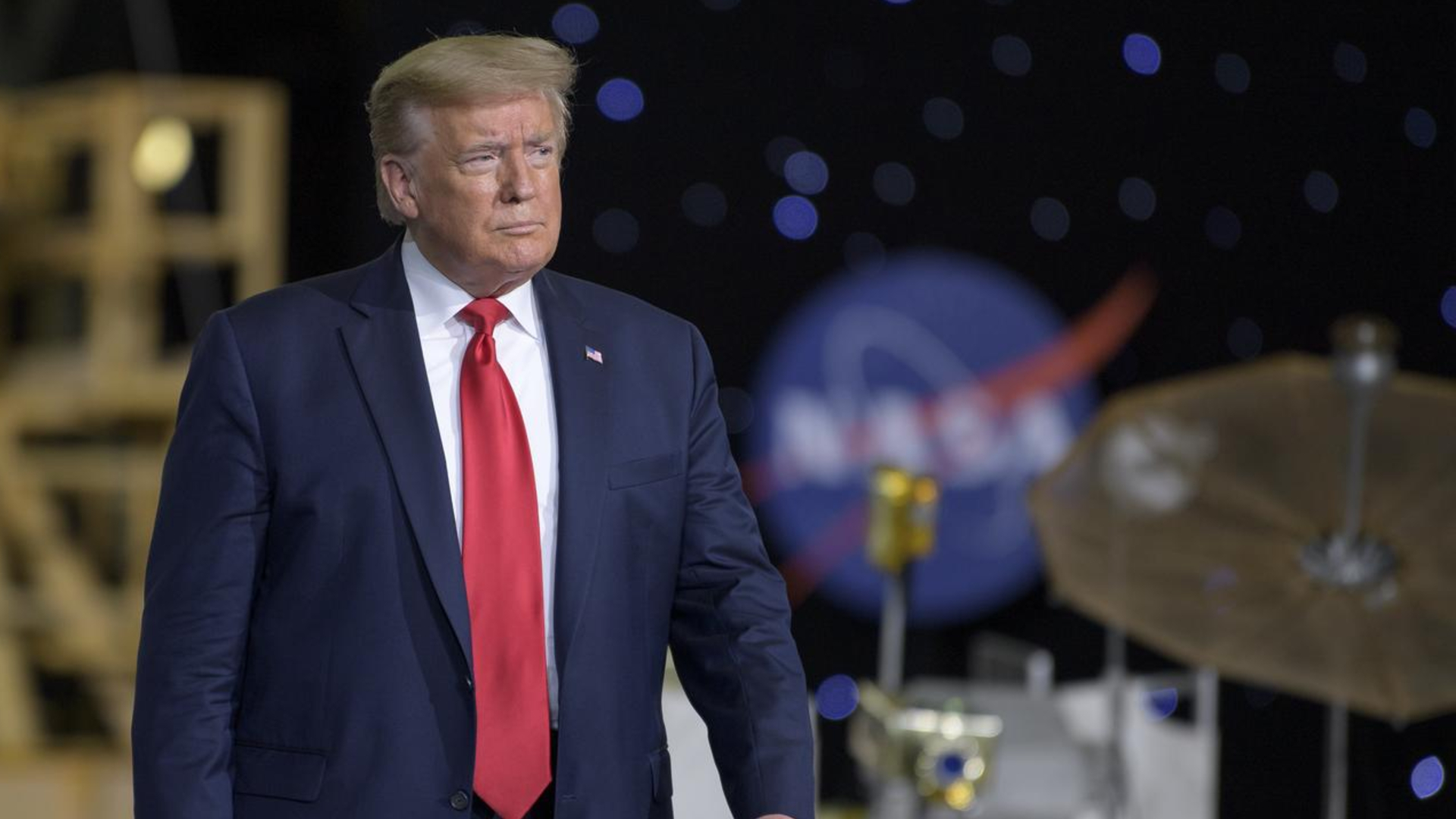Voting from Space: How Astronauts Do It

NASA astronaut Shane Kimbrough is off the planet at the moment, but he still had his say in this year's presidential election.
Kimbrough, commander of the current Expedition 50 aboard the International Space Station (ISS), was able to vote from orbit thanks to procedures put in place by Texas legislators in 1997. (Most NASA astronauts live in the Lone Star State; Johnson Space Center, the hub of NASA's human spaceflight program, is in Houston.) [Watch: How Astronauts Vote from Space]
The "voting process starts a year before launch, when astronauts are able to select which elections (local/state/federal) that they want to participate in while in space," NASA officials wrote in a Tumblr post recently. "Then, six months before the election, astronauts are provided with a standard form: the 'Voter Registration and Absentee Ballot Request — Federal Post Card Application.'"
When astronauts get their absentee ballots, their address is listed as "low-Earth orbit," said Kate Rubins, who wrapped up a nearly four-month stint aboard the space station late last month.
Mission Control at JSC beams a digital version of these absentee ballots up to ISS crewmembers, who fill them out and send them back down. The ballots then go directly from Mission Control to the voting authorities, JSC officials have said.
Both Kimbrough and Rubins used this system to vote from the ISS this fall, NASA officials said.
NASA astronauts began voting from space in 1997, three years before people started living and working aboard the ISS. The first American to cast his ballot from orbit was David Wolf, who did so while aboard the Russian space station Mir, NASA officials have said.
Breaking space news, the latest updates on rocket launches, skywatching events and more!
In 2004, Leroy Chiao became the first NASA astronaut to vote from space in a presidential election. He was commanding Expedition 10 aboard the ISS at the time.
"I think it's pretty amazing," Rubins said in late October during an interview for NASA's weekly "Space to Ground" ISS update. "It's very incredible that we're able to vote from up here, and I think it's incredibly important for us to vote in all of the elections."
Kimbrough currently shares space on the ISS with cosmonauts Sergey Ryzhikov and Andrei Borisenko. The trio will soon be joined by NASA astronaut Peggy Whitson, cosmonaut Oleg Novitskiy and European Space Agency astronaut Thomas Pesquet, who are scheduled to launch toward the orbiting lab on Nov. 17.
Follow Mike Wall on Twitter @michaeldwall and Google+. Follow us @Spacedotcom, Facebook or Google+. Originally published on Space.com.

Michael Wall is a Senior Space Writer with Space.com and joined the team in 2010. He primarily covers exoplanets, spaceflight and military space, but has been known to dabble in the space art beat. His book about the search for alien life, "Out There," was published on Nov. 13, 2018. Before becoming a science writer, Michael worked as a herpetologist and wildlife biologist. He has a Ph.D. in evolutionary biology from the University of Sydney, Australia, a bachelor's degree from the University of Arizona, and a graduate certificate in science writing from the University of California, Santa Cruz. To find out what his latest project is, you can follow Michael on Twitter.

